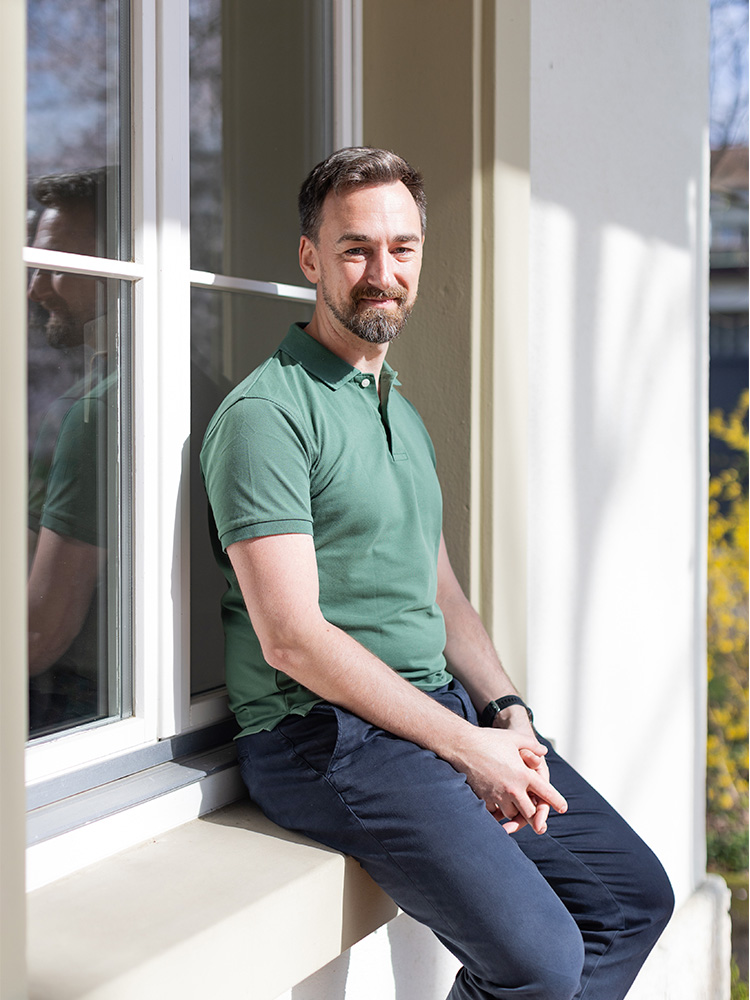Not enough research into psychiatric nursing care.
Text: Michael Ketzer, nursing scientist*
Michael Ketzer wanted a job that involved working with people. After several years in the nursing profession, he is now researching what constitutes and promotes quality in care.
I first became involved in nursing during my civilian service. It gives me a great sense of purpose, as I get to work with people directly. Nevertheless, I decided to study economics, but found myself missing human contact. Once I had completed my bachelor’s degree, I therefore decided to do an internship in a hospital and then trained as a nurse. After working in the direct care for many years, I did a Master’s in Nursing Science at the University of Basel.
Since 2023, I’ve been working on my dissertation in the field of health services research with a focus on nurse staffing. Staffing levels are often precarious in the care sector, but this is difficult to illustrate.
I know from experience how challenging nursing can be as a profession. Shift patterns make it hard to juggle your work and personal life. Understaffing exacerbates the situation by increasing the workload, which in turn reduces the level of care that patients receive.
In my doctoral dissertation, I want to highlight quality of care, how it is affected by understaffing and the consequences this can have. My analyses aim to provide foundations for politicians and healthcare facility managers to improve the working conditions of nursing staff. This will benefit patients, too, and ultimately the entire system: This may sound somewhat abstract at first, but sooner or later we’ll all feel the concrete effects of a lack of nurses, either directly or indirectly. Nurse understaffing causes harm to people, at great cost to both humanity and society.
Although I haven’t worked in psychiatric care, I’m analyzing data from this field for my dissertation. This seems like the right choice because research is still lacking in this field, partly due to the stigma surrounding mental disorders.
I really enjoy working with data. There’s so much to discover, but it often goes unused. That makes me curious. At the moment, I’m mainly conducting research, rather than working with patients directly, but that might change again if the opportunity presents itself.
* Recorded by Noëmi Kern
More articles in this issue of UNI NOVA (May 2024).

